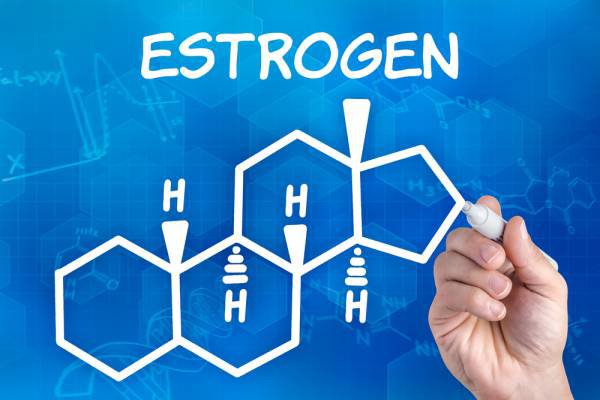Side effects of female hormone drugs
This is an automatically translated article.
Female hormone drugs are often prescribed to help improve conditions related to hormone deficiency in women. However, like any other drug, before using the patient should be aware of the side effects of this drug.
1. Overview of female endocrine drugs
Hormone therapy (HT) is the general term for female hormone therapy:
Estrogen therapy (ET): Estrogen works to alleviate some of the symptoms of menopause such as hot flashes. , sleep disturbance, vaginal dryness. Estrogen comes in the form of tablets, patches, gels, sprays or vaginal preparations (rings, vaginal tablets, creams...). The choice of type of estrogen recommended by a doctor depends on a woman's symptoms. For example, vaginal creams, vaginal tablets, and vaginal rings are used to cure vaginal dryness, while pills or patches are used to soothe hot flashes. ET therapy is usually given to women who have had a hysterectomy. Combination therapy (EPT): Using only the female hormone estrogen without progestin increases the risk of endometrial cancer. Today, most progestin is indicated in combination with estrogen in women who have not had a hysterectomy to eliminate this risk. Although Progestin is usually taken in pill form, there are patches that are similar to Estrogen. Overall, these are the most effective methods to help treat the signs of menopause in women.
2. Side effects of endocrine drugs
Women may experience hormonal side effects during hormone treatment, including mild reactions and severe reactions. Common hormonal side effects include:
Soreness or chest tightness; Dizziness, lightheadedness; Headache; Rapid weight gain; Swollen feet, legs, cramps; Vaginal bleeding
Soreness or chest tightness; Dizziness, lightheadedness; Headache; Rapid weight gain; Swollen feet, legs, cramps; Vaginal bleeding

Việc lựa chọn loại Estrogen được bác sĩ đề nghị tùy thuộc vào các triệu chứng của phụ nữ
Some side effects of hormonal drugs rarely occur:
Breast lumps; Change in vaginal discharge; Nipple discharge; Nausea and vomiting; Chest pain, groin or leg pain (especially calf); Abdominal pain, side pain; Pain or feeling of pressure in the pelvis; severe or sudden headache; Unexplained shortness of breath; Sudden slurred speech; Sudden changes in vision; Jaundice or yellow eyes; Weakness in the arms or legs.

Đau đầu dữ dội hoặc đột ngột là tác dụng phụ của thuốc nội tiết
In addition, some serious health problems can occur with hormone therapy (HT) including:
Increased risk of blood clots forming in the legs (deep vein thrombosis) and blood clots in the legs. pulmonary embolism (pulmonary embolism) 2-3 times. However, it's important to remember that these conditions are extremely rare in healthy women. Therefore, the actual increase in risk for healthy women is minimal. Women with a personal or family history of blood clots should consider this before taking hormone therapy. Irregular vaginal bleeding: Women on hormone therapy are more likely to experience abnormal vaginal bleeding than other women. People who use hormone therapy for more than 5 years have a higher risk of breast cancer, heart disease, and stroke than non-users.
3. How to reduce the risk of side effects
Some mild hormonal side effects may go away as the body adapts to the medication, so no medical attention is needed. In addition, your doctor can show you some ways to prevent or reduce the side effects of hormonal drugs, for example:
Take estrogen pills with food to reduce discomfort and indigestion; Eating a low-fat, high-carbohydrate diet can reduce breast tenderness; Regular exercise and stretching limit leg cramps; If hormonal side effects persist, your doctor may suggest switching to a different estrogen regimen (for example, changing from a tablet to a patch), changing the hormone medication you're taking, or reducing it. amount. Talk to your doctor if any of these side effects persist or tend to be serious.
Currently, Vinmec International General Hospital has a package of pre-menopausal health examination and counseling. When registering for an examination package, customers will be examined and consulted with a specialist in Gynecology; Perform tests to evaluate hormonal status such as:
Gynecological examination Gynecological examination, breast examination Transabdominal ultrasound of the uterus and ovaries Taking samples for cervical-vaginal smear Mammogram (2 sides) Measurement of osteoporosis Perform tests such as: quantitative FSH (Follicular Stimulating Hormone), quantitative FSH (Follicular Stimulating Hormone), quantitative LH (Luteinizing Hormone), quantitative AMH (Anti-AMH) - Mullerian Hormone), Estradiol, Testosterone, Cholesterol, LDL - C (Low density lipoprotein Cholesterol), HDL-C (High density lipoprotein Cholesterol), Glucose AST (GOT) measure ALT activity (GPT), total urinalysis (By automatic machine),... Customers can check at any time, but it is best to come to the clinic when there is no vaginal bleeding. The package of pre-menopause health care examination and counseling is not available for customers with estrogen-dependent genital cancer, embolism, and hepatobiliary disease.
Please dial HOTLINE for more information or register for an appointment HERE. Download MyVinmec app to make appointments faster and to manage your bookings easily.
References: medlineplus.gov, medicinenet.com, mayoclinic.org, nhs.uk
This article is written for readers from Sài Gòn, Hà Nội, Hồ Chí Minh, Phú Quốc, Nha Trang, Hạ Long, Hải Phòng, Đà Nẵng.





